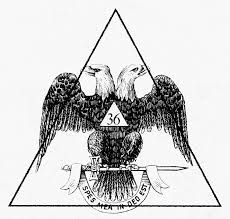The Freemasons: A Historical and Contemporary Overview

Introduction
The Freemasons, one of the world’s oldest and largest fraternal organisations, have long intrigued individuals with their secretive traditions and rituals. With roots tracing back to the late 16th to early 17th century, the topic of Freemasonry is not only rich in history but also relevant in discussing its influences on society and culture today.
A Brief History of Freemasonry
Although the specific origins of Freemasonry are somewhat ambiguous, it is widely believed to have evolved from the guilds of stonemasons and cathedral builders in the late Middle Ages. The first Grand Lodge was established in London in 1717, and the organisation has since spread globally. Freemasonry promotes moral and ethical development among its members, emphasising values like charity, honesty, and integrity.
Freemasonry Today
In modern times, Freemasonry remains active, with millions of members worldwide. According to recent estimates, there are approximately six million Freemasons globally, with the United Kingdom, the United States, and Canada hosting the largest populations. Membership is typically open to men over the age of 18 who believe in a Supreme Being, though some lodges admit women. The organisation conducts charitable work, funding education, healthcare, and disaster relief initiatives, demonstrating its commitment to social improvement.
Contemporary Relevance
With increasing scrutiny on secret societies, the role of Freemasons in contemporary society has often been the subject of debate. While some view them as an elitist group with undue influence in politics and business, others highlight their charitable contributions and commitment to ethical values. Recent events, such as public charity initiatives and community engagements, have aimed to dispel myths surrounding Freemasonry, showcasing their relevance in today’s society.
Conclusion
Understanding Freemasons requires an appreciation of their rich history combined with an awareness of their current impact. As they continue to evolve and adapt to modern societal norms, the Freemasons should not only be viewed through the lens of historical intrigue but also as a community contributing significantly to social good. Their ongoing commitment to ethical living, charity, and fraternity remains significant for both members and society at large. The Freemasons serve as a reminder of the value of community and shared moral responsibility, bridging past traditions with present-day realities.









